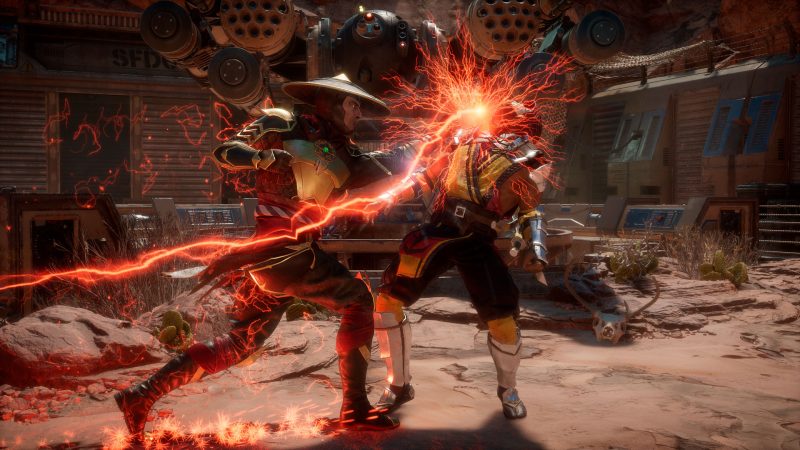Netherrealm studios unveiled Mortal Kombat 11 gameplay two weeks ago. There was a lot to unpack in the thirty-minute presentation, including new characters, a revamped gear system, and major changes to some core fighting mechanics. Most of it looks like positive changes, but there was some worrying stuff there too.
Netherrealm studios

In 2015, MKX began a trend of microtransactions in their game, introducing the controversial “easy fatalities” system. They were dismissed by many media pundits and fans alike with the usual excuses of “they don’t affect gameplay” and “they’re purely optional”. These were true, although there was still a discussion to be had about why they were in the game at all. Several years later, Injustice 2 also included microtransactions in the form of a secondary currency called “source crystals” which would allow the player to buy new color palettes for characters and change the appearance of costume pieces. This would not have been any more worrying than the appearance of microtransactions in paid games ever is, except for one thing; if such a large competitive scene has burgeoned around the game, how can extra monetisation be integrated without affecting that side of the experience? The fear of this imbalance was amplified when the game also included loot boxes and random gear drops that allowed one to augment the skills of a character. While this system was not tied into any monetisation, including the microtransactions, and could be turned off in online competitive play, it was worrying to see it in any capacity in a game that was played competitively.
When Mortal Kombat 11 was announced at The Game Awards in December, it was immediately followed with the promise of a playable character exclusive to people who pre order the game. Potentially the most powerful character in the roster, Shao Kahn, will only be available for those who purchase before launch . This was also the case with Goro in MKX and Darkseid in Injustice 2, who could also be bought for additional money after the fact, and it was just as unacceptable in both of those instances. For this to be a truly fair game, all sides would need to be equal, but this is simply not the case when some players have access to resources that others do not. The fact that most pro players will buy the characters no matter what only reinforces the point. It discourages those who may not have the money to buy extras from trying to compete against those who do. It means that people who have not experienced playing with or against those characters will be at a disadvantage against those who have. There is no other way to look at it, whether one agrees with the model or not; it creates imbalance in the game.
No other monetization systems have been confirmed yet, but Mortal Kombat publisher Warner Brothers has not earned a great deal of trust. Even aside from the easy fatality controversy, it is the same company that was behind the disastrous PC ports of Arkham Knight and MKX, as well as the horrible implementation of microtransactions in Middle Earth: Shadow of War. It’s hard not to feel like their use of loot boxes in Injustice 2 was to test the waters as to just how much the community would allow, and I fully expect them to try and implement some sort of paid advantage in a future game. This would set a dangerous precedent in esports and could damage a rapidly growing industry before it truly gets off the ground.
The game could be fantastic. In fact, I think it will be the best game the studio has yet to release. But it’s getting harder and harder to look past some of the less desirable parts of the monetisation model.


